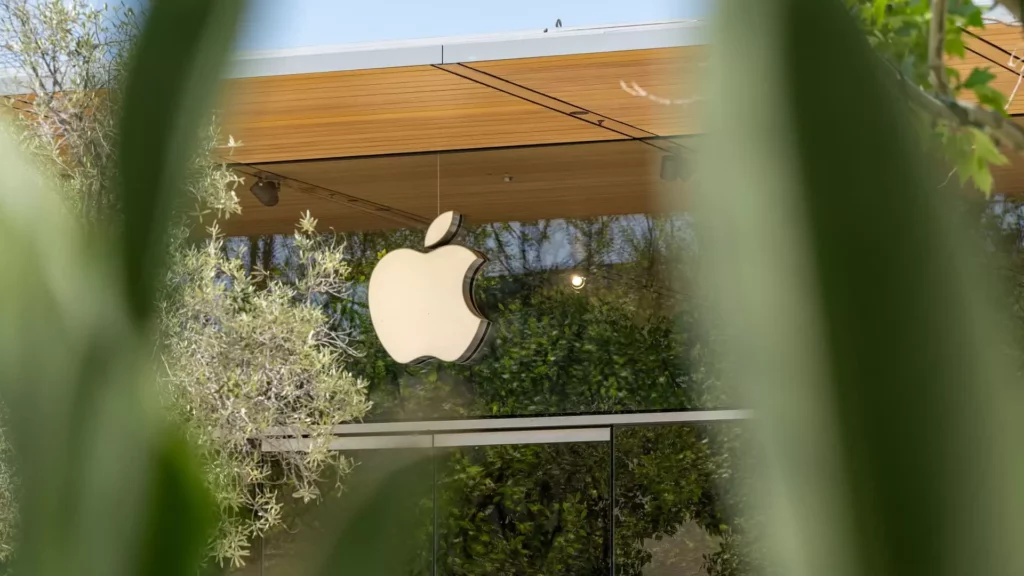In the ever-evolving landscape of digital marketplaces, the fight for economic justice has taken center stage as tech monoliths clash. The ongoing saga between Apple and Epic Games epitomizes a high-stakes battle over the control of the App Store—a battleground where developers feel stifled under the weight of Apple’s stringent commission structure. This confrontation does not merely represent a legal dispute but underscores a broader societal concern regarding monopolistic practices in rapidly digitizing economies. With U.S. District Judge Yvonne Gonzalez Rogers issuing a recent ruling that redefines the scope of Apple’s dominance, we find ourselves at a pivotal moment in the tech industry.
A Revelation in the Courtroom
Judge Rogers’ ruling elucidates that Apple did not adhere to a prior court order concerning their in-app payment mechanisms. The decision requires Apple to allow developers to steer consumers toward alternative payment platforms—an act that challenges the traditional revenue model that has fattened Apple’s coffers for too long. This decision marks a significant deviation from earlier judicial perspectives, suggesting a renewed focus on empowering developers and fortifying competition. Apple, however, has quickly mounted a defense, asserting that the ruling jeopardizes their financial stability and consumer choice. Their refusal to comply raises important questions about their commitment to innovation versus their drive to maintain an entrenched position in the marketplace.
The Financial Stakes and Their Implications
Apple claims implementation of these changes could result in staggering financial losses, ranging from hundreds of millions to billions annually. Such a statement emphasizes how critical this ruling is for Apple and highlights their fear of a diminishing monopoly. However, can a company’s financial health truly justify the suppression of competition? Tim Sweeney, the CEO of Epic Games, suggests this ruling is not so much about Apple’s protection but more about accelerating competition. The conundrum pits the interests of major tech corporations against the rights of individual developers to carve out their revenue pathways.
The narrative around loss—both for Apple and those who might consider alternative payment solutions—demands careful scrutiny. Developers now find themselves energized to utilize new strategies that mitigate Apple’s hefty commissions. For example, Amazon’s updated Kindle app showcases a direct link to its own payment system, demonstrating that changes are already afoot. This evolving developer landscape hints at a potential renaissance in app monetization, one that shifts the focus from Apple’s restrictive practices to a more equitable playing field.
Consumer Choice: A Double-Edged Sword
While Apple warns that allowing alternative payment methods might deprive consumers of safety and quality, it’s essential to interrogate the validity of such claims. By limiting payment choices, isn’t Apple itself undermining consumer freedom? The cynical juxtaposition of “consumer choice” versus “corporate control” plays out starkly in this discourse, and it demands critical examination. Historically, monopolistic practices have stifled innovation, and it would appear that Apple’s fear of competition could potentially result in a regression in quality rather than a protection of it.
This case adds complexity to the ongoing debate: Should a company like Apple wield such unfettered control over the mechanisms that dictate competitiveness and consumer interaction? The lines between corporate authority and consumer rights are becoming increasingly blurred, and this legal debacle will serve as a landmark precedent for what constitutes fair play in digital economies.
The Ripple Effect on the Tech Industry
As the drama unfolds, the ramifications are far-reaching—not just for Apple and Epic Games, but for the broader ecosystem of app development and digital commerce. Recently, calls for accountability have intensified, especially with Judge Rogers referencing potential criminal misconduct by Apple. If found guilty, the consequences could reverberate throughout the industry, pressuring other tech giants to reconsider their own practices.
The blooming surge of voices from developers airing grievances about monopolistic restraint is telling. It is an acknowledgment that the dynamic of power is shifting, demanding transparency and fairness in a sector where digital influence continues to expand.
For a center-right liberal concerning technology, these debates champion the virtues of market competition and consumer rights. They signal a necessary confrontation against monopolistic tendencies in an industry that historically insulated itself from accountability. Such disputes are essential for steering the industry towards a fairer, more competitive landscape, where new ideas can flourish free from suffocating control. This is not merely a contract dispute; it’s emblematic of a societal shift towards understanding the ethics of corporate power in our increasingly digital age.









Leave a Reply